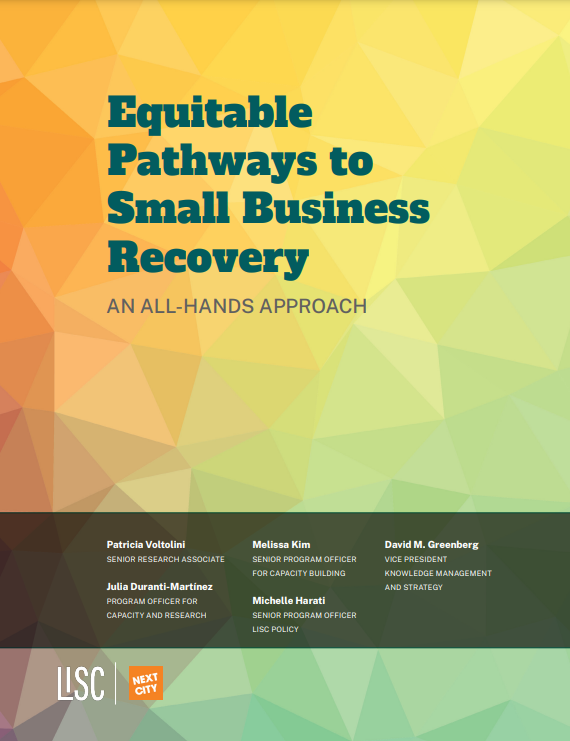Equitable Pathways to Small Business Recovery
A new playbook from LISC and Next City offers a framework for pursuing equitable pathways to small business success, and lays out contextualized strategies related to capital access, small business capacity, and commercial real estate. Two of its authors explain why that’s so important.
Executive Summary
COVID-19 has had a devastating impact on small businesses, with potentially lasting effects. Small businesses need support in the months ahead, but more intentional, equitable recovery strategies are especially required. This is because, like so many other aspects of the pandemic, the burden on small businesses fell disproportionately on people of color. In its first months, the number of active Black-owned businesses fell by 41%, and the number of Latinx-owned businesses fell by 32%, or approximately 1.5 to 2 times the overall closure rate. Given these realities, many local governments are eager to promote a more equitable recovery among small businesses. And especially with federal funds now being channeled to states and localities, they have an opportunity to both promote economic recovery and close longstanding wealth gaps.
But government cannot act alone to support an equitable recovery, because recovery is driven by factors beyond its direct control. Entrepreneurs need access to capital, affordable real estate, and customers.
They also need skilled workers, who themselves require access to training and employment networks that lead to better jobs within small businesses. Addressing this breadth of needs requires recovery strategies that engage many sectors, including banking, community development financial institutions (CDFIs), commercial real estate, business-supporting nonprofits, and workforce development agencies. Local government, therefore, may need to play a convening role in an all-hands approach, working with citywide, regional, and community partners to ensure efforts are aligned.
In this spirit, LISC partnered with Next City to develop a playbook for equitable small business recovery that is tailored to government audiences in different kinds of economic and regional contexts both urban and rural. Drawing on original research and diverse cohorts of public officials and practitioners, all of the playbook’s strategies are supported by a series of five mutually reinforcing principles that we call “equitable pathways to recovery.
